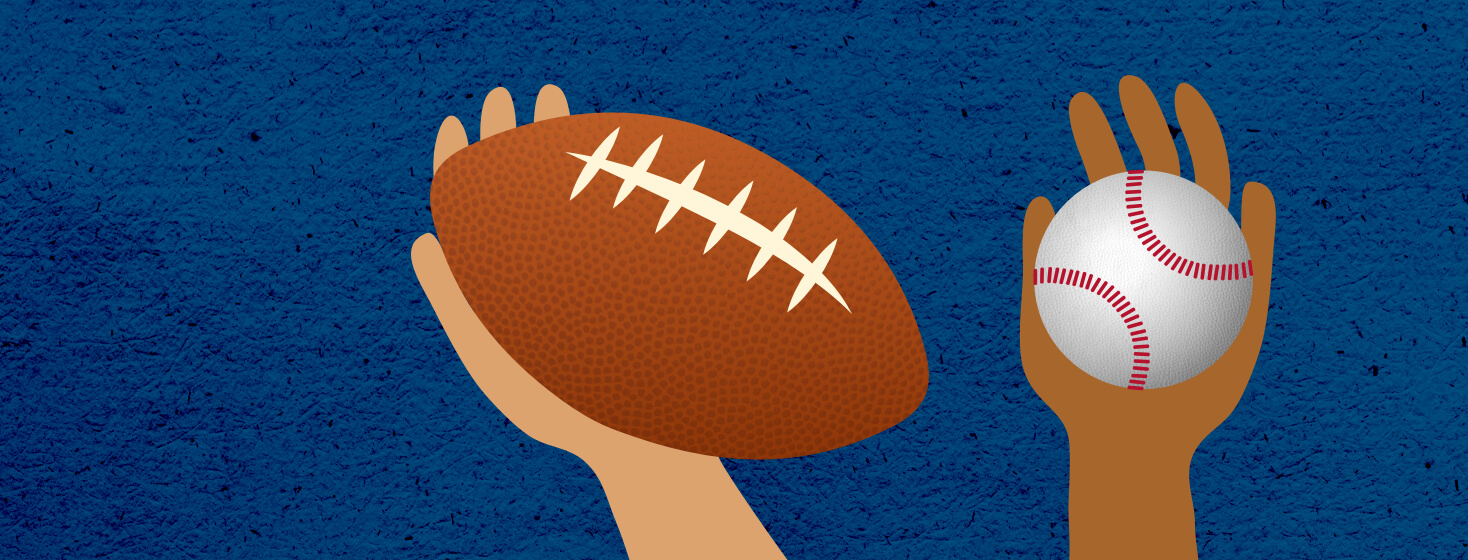The Difference Between AMD and MMD
Here at MacularDegeneration.net, we all have one thing in common... we are struggling with vision loss. Either we, ourselves, have been diagnosed with some form of degenerative eye disease or we are here in support of a loved one who has. Many, but not all of our community members have age-related macular degeneration (AMD or ARMD). Some of us have a very similar but not well-known form of macular degeneration called myopic macular degeneration, or MMD.
What’s the difference between myopic and age-related macular degeneration?
MMD is caused by extreme myopia and AMD is caused by aging eyes. Symptoms like retinal tears, scotomas, and wavy lines in vision rear their ugly heads about 50 years sooner for those of us with MMD than they do for those with AMD. Similarly, my vitreous gel also detached about 50 years sooner than most, which means my eyes are a city of floaters.
I needed corrective lenses at the age of 3
Many people who acquire AMD later in life have had perfect vision their whole lives, never needing corrective lenses to see. Or, if they did need corrective lenses, they may have needed low prescriptions or ‘readers.’ People with MMD have high myopia and are very nearsighted. I have struggled with vision my whole life, getting my first pair of coke bottle glasses at the mere age of 3.
Very low vision on top of my MD symptoms
Most people with MMD are legally blind without any corrective lenses. This is because people with highly myopic eyes have eyes that are shaped like footballs, where most people with AMD have regular sphere-shaped eyes. These big baby blues I have are really just misshapen eyeballs that curve too much to see well without glasses or contacts. Also, people with MMD tend to see much better with contacts than with glasses. My current diopter is -14 in my left eye and -15 in my right (when the refractor can actually get an accurate read). This means that I am blind as a bat but can see 20/20 (on a good day) with special contacts.
To put it in perspective
Someone with 20/20 vision has no diopter and needs no corrective lense to see. After establishing a new retina specialist a few years back, my doctor soon realized his phoropter wasn’t going to give him an accurate read on my diopter in either eye. You see, the machines only go up so high (sarcastic yay me for excelling in high diopter). This RS told me that in all of his patients, I have one of the highest diopters he’s ever seen.
That’s when I explained to him that my optometrist is often forced to use the trial and error process when finding the right prescription for my contacts each year. I go back and forth until we find the right one (she is so patient and amazing).
Treatment for MMD
As of now, there is no treatment or cure for MMD. Sigh, I know...
I have seen a few varying opinions on whether or not myopic macular degeneration can be both dry and/or wet... but I have been told by my trusted retina specialist that I will never ‘turn wet.’ That doesn't mean I won't have continued vision loss or won't completely lose my central vision (like those who have AMD). It just means that I will probably not be able to receive injections to treat my eyes. With age-related macular degeneration, a person can receive injections to help preserve their vision.
There’s no treatment, so what can we do?
We can take appropriate vitamins (more on this in part 2 of this article series). We can exercise regularly to keep our weight down and pressure low in our eyes. Exercising also releases hormones that are necessary in order for our bodies to fully absorb the nutrients we provide to it. We can easily protect our fragile eyes from UV rays by wearing sunglasses and hats anytime we are outside. And, we can be sure to block as much blue light from our electronic devices as possible.
Giving our eyes a fighting chance
Having an incurable, untreatable disease can feel really scary. So, don't forget to take care of your emotional needs as well! This is another important piece of the puzzle. These ‘things’ we can do for our eyes may not seem like much, but it all really goes a long way in giving our eyes a fighting chance. Be sure to check out part 2 of this article series where I discuss more of my personal experience with MMD and how I chose which vitamin supplements to take for it.
Andrea Junge

Join the conversation